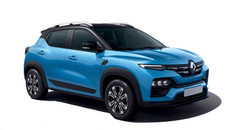The Renault Group will take over complete control of the Indian manufacturing operations in a joint venture (JV) with Nissan. So far, Renault has had a 49 percent stake in the JV, while Nissan held the rest. Now, Renault will take over 100 percent ownership, even though Nissan will continue to use the manufacturing infrastructure under the current JV, Renault Nissan Automotive India Private Ltd (RNAIPL). The move is part of a broader set of announcements that redefine the Renault-Nissan Alliance.
- RNAIPL to become a fully owned subsidiary of Renault Group
- Renault to manufacture models for Nissan under a contract model
- Domestic product plans for both companies remain unchanged
Nissan’s statement
“We remain committed to the Indian market, delivering vehicles tailored to local consumer needs while ensuring top-notch sales and service,” said Ivan Espinosa, president and CEO of Nissan. “India will remain a hub for our research and development, digital and other knowledge services.”
Torres explained that the move was part of Nissan’s global turnaround strategy, allowing the company to convert fixed costs into variable costs by paying per unit produced.
“We need to take measures that can help improve both efficiency and fixed-cost management at the same time. And with this decision, we are transitioning from a fixed cost in the plant to a variable cost, as it will be paid by the car. From now on, RNAIPL will be a supplier from NMIPL [Nissan Motor India Pvt Ltd], from Nissan,” he added.
Renault Group’s statement
“This project represents a key opportunity for Renault to expand its international business,” said Luca de Meo, CEO of Renault Group. The transaction, expected to close by the end of the first half of 2025, will see RNAIPL become a wholly owned subsidiary of Renault.
What it means for Renault and Nissan's operations?
RNAIPL is now a supplier to Nissan
Renault will now manufacture all Nissan vehicles under a contract model – a reversal of roles from the earlier alliance structure, where Nissan held the majority stake in RNAIPL.
Meanwhile, Nissan will retain a presence in India and continue to utilise RNAIPL for domestic and export production. However, relinquishing control of the plant also means Nissan has lost direct influence over capacity, operational decisions and workforce management. All manufacturing-related decisions, including the allocation of production between Renault and Nissan models, will now be made by Renault.
Torres maintained that Nissan has secured capacity for all its planned models through 2032 but acknowledged that any future expansion would depend on mutual agreement.
Upcoming production plans at Renault’s Chennai plant
Four new models from both brands are on track
All current and planned Nissan models – including the Magnite, new B- and C-segment SUVs, and an affordable EV – will continue to be manufactured at the facility.
The companies also agreed to amend the New Alliance Agreement, reducing the lock-up commitment on cross-shareholdings from 15 percent to 10 percent, thereby providing both parties with greater flexibility in managing their equity stakes. As part of the same amendment, Nissan will also be released from its commitment to invest in Renault’s EV arm, Ampere.
Also See:
Nissan global recovery plan revealed
6 percent luxury EV tax withdrawn by Maharashtra government









.jpg?w=234&h=156&q=90&c=1)

Comments
Member Login
Personal Details
No comments yet. Be the first to comment.